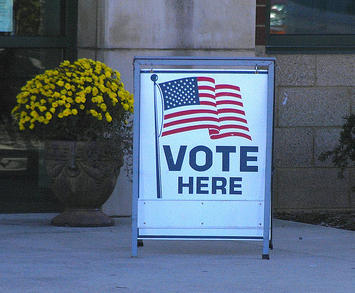
As they approach what could be a troublesome election season, Democratic party strategists have targeted two issues – inequality and race – as their primary means to prevent another shellacking in the mid-terms.
But given the growing dominance of wealthy and overwhelmingly white gentry liberals, the class issue could prove troublesome, particularly given the tepid performance of the economy.
In contrast, race appears to be the gift that keeps on giving. For Democrats, every day recalls the early civil rights struggle. Racially-tinged outbursts by people like Clippers owner Donald Sterling and Nevada rancher Cliven Bundy allow the progressives and the media to play the race card – a convenient way to boost minority turnout.
Clearly, any sizeable drop- off in minority turnout would benefit the Republicans, who, to date, have been largely unsuccessful in appealing to non-white voters.
A more relevant concern may be whether the overwhelming commitment minorities have to the Democratic Party actually works in their favor.
To be sure, under the current regime, well-educated, affluent and well-connected minorities stand at the pinnacle of power, including the presidency and attorney general’s office.
Culturally, the impact of African Americans and, increasingly, Hispanics has arguably never been greater.
But beyond the symbolic level, the picture is considerably less inspirational. However much some historically neglected minorities have thrived and excelled, the overall economic and social gains for most minorities have been paltry at best.
Despite the benefits of government programs such as affirmative action – something opposed by some other minorities, notably Asian Americans – African Americans have not expanded their share of the middle class in recent decades. Indeed, racial economic disparities are growing, with black unemployment more than double the white jobless rate and reaching 40 percent among youths.
Even more revealing, many of those areas under the most complete progressive control – New York, San Francisco and Chicago – also have among the worst disparities between black and white incomes, notes a recent National Urban League study.
It may well be that hyper-regulatory regimes in the left-leaning cities tend to chase away blue collar jobs and raise the price of housing so high that minorities simply leave. Many of those who stay pay an inordinate share of their income, often upwards of 50 percent, just to keep a roof over their head.
As Thomas Sowell has observed, the black population of San Francisco, the ultimate gentry city, is now half of what it was in 1970, even as the city has experienced an overall demographic resurgence.
To be sure, a primarily redistributionist approach may improve some material conditions, but it also seems to foster a permanent underclass of dependents.
This can be seen in the ability of the 50-year war on poverty to reduce levels considerably after the initial gains of the 1960s.
The biggest reductions in poverty have taken place not during periods of higher welfare spending, but during economic expansions such as those that occurred under Presidents Reagan and Clinton, both of whom, in different ways, opposed the expansion of traditional welfare programs.
This article first appeared in the Orange County Register.
Joel Kotkin is executive editor of NewGeography.com and Distinguished Presidential Fellow in Urban Futures at Chapman University, and a member of the editorial board of the Orange County Register. He is author of The City: A Global History and The Next Hundred Million: America in 2050. His most recent study, The Rise of Postfamilialism, has been widely discussed and distributed internationally. He lives in Los Angeles, CA.
Voter sign photo by Bigstock.













mevabe
gioi thieu cho cac me he thong sieu thi mevabe cung cap do dung cho me va be , sua bot Dumex chinh hang, sua tuoi vinamilk 100% nguyen chat, sua Nestle cho tre em tai sieu thi sua bot lon nhat viet nam , ban co the xem them cac san pham sua Physiolac gia tot nhat hien nay , cung voi Bao moi choi game iwin online tren mobile
vote is here! We must not
vote is here! We must not waste votes and it is our right. vote means so many things and it can decide the goodness for all of us.
"To be sure, a primarily
"To be sure, a primarily redistributionist approach may improve some material conditions, but it also seems to foster a permanent underclass of dependents."
Programs that link the level of assistance to the level of effort (such as the earned-income tax credit) do not share this disadvantage.
FWIW I've hit upon a single-parameter version of the EITC that would avoid some of its arbitrary features, including the high-marginal tax rates that bedevil all means-tested welfare programs that phase out once a certain predetermined income point (defined in the law) is passed. Write me and I will tell you how it would work. luke.lea@gmail.com
Luke Lea